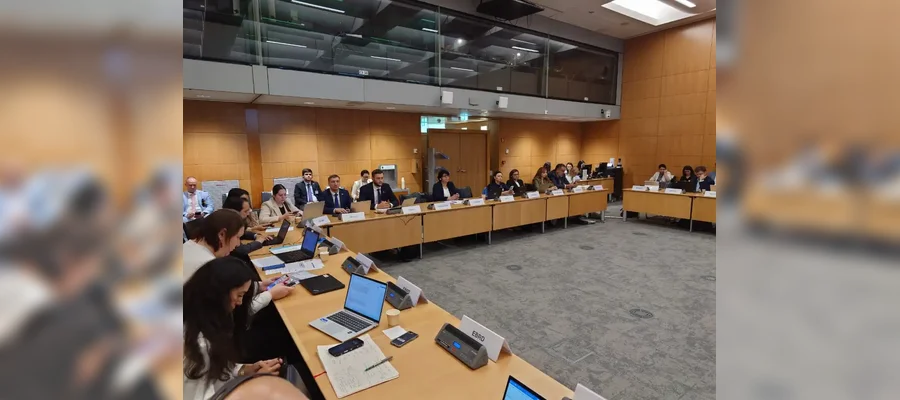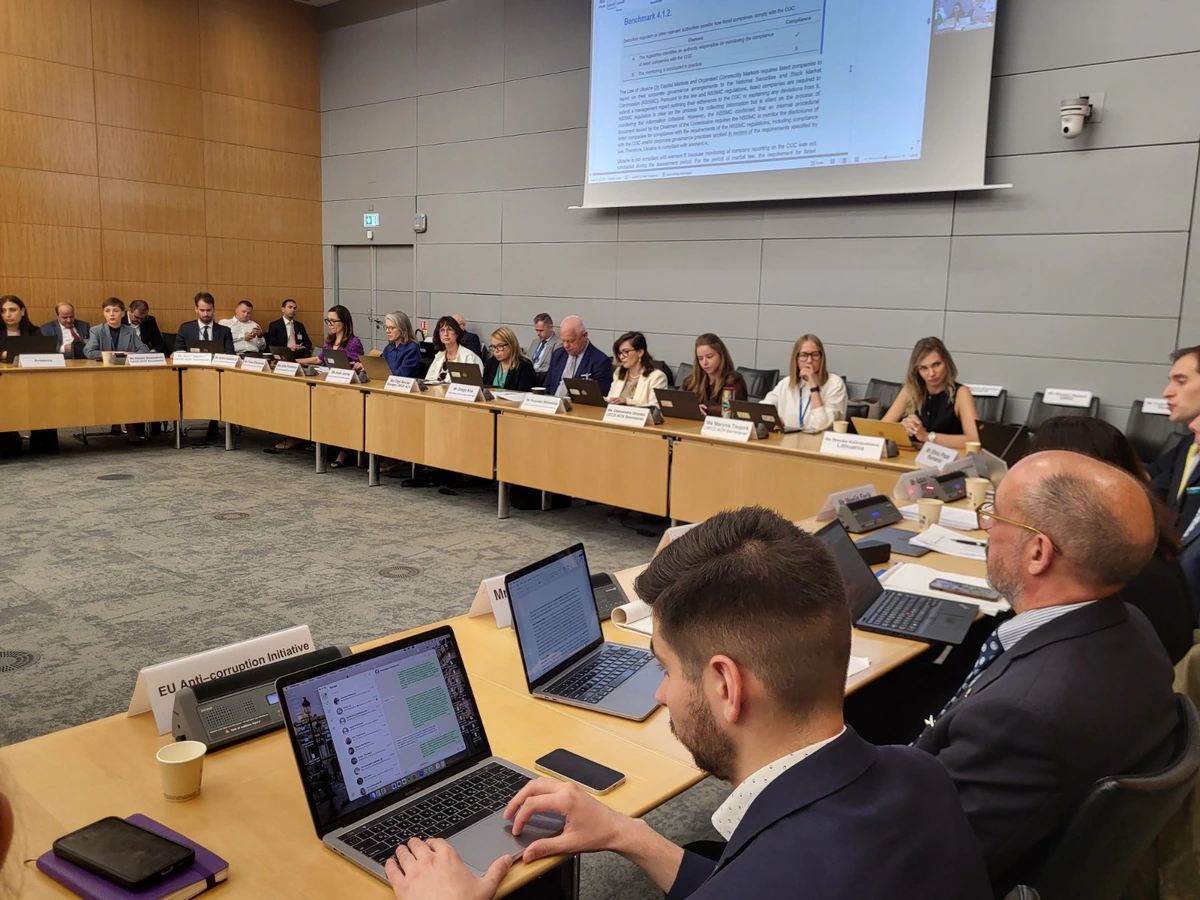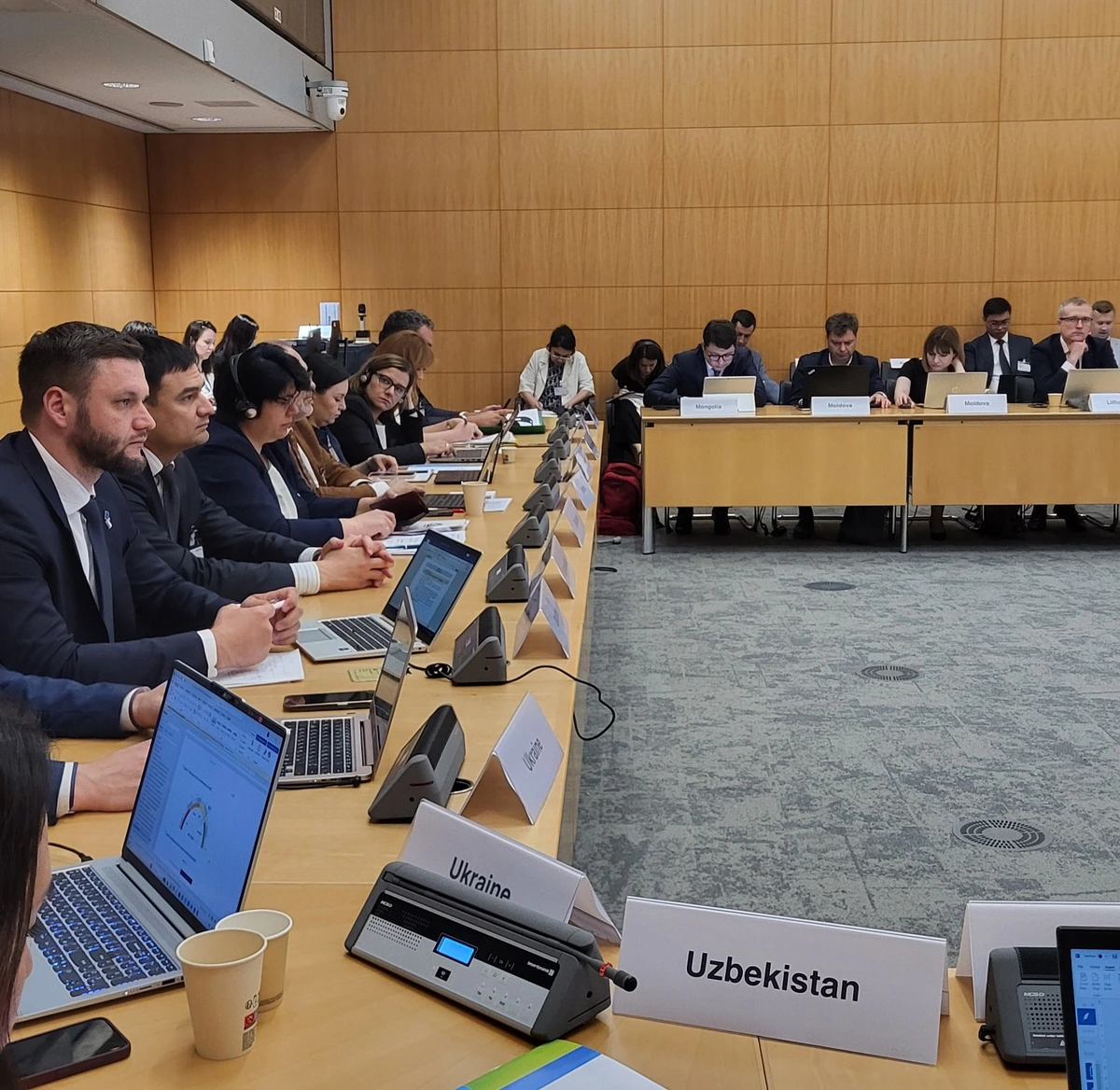
On July 7–9, 2025, a Ukrainian delegation led by Viktor Pavlushchyk, Head of the National Agency on Corruption Prevention (NACP), took part in the Plenary Meeting of the Anti-Corruption Network of the Organisation for Economic Co-operation and Development (OECD) for Eastern Europe and Central Asia. During the meeting, the results of a comprehensive assessment of Ukraine's anti-corruption policy, conducted as part of the 5th round of monitoring of the Istanbul Action Plan on Combating Corruption, were presented.
The review began in December 2024 and ended with the approval of a report covering the assessment of Ukraine's anti-corruption prevention and response system in nine key areas: ‘Anti-corruption policy’, ‘Conflict of interest and asset declaration’, ‘Whistleblower Protection’, ‘Integrity in Business’, ‘Transparency of Public Procurement’, ‘Independence of the Judiciary’, ‘Independence of the Prosecutor's Office’, ‘Specialised Anti-Corruption Bodies’, and ‘Accountability for Corruption Offences’.
The OECD Monitoring Group noted that, in the two years since the previous assessment, Ukraine had made significant progress in most areas.
Ukraine received the highest scores - over 90 points out of a possible 100 - in the areas of ‘Anti-corruption policy,’ ‘Whistleblower protection,’ and ‘Specialised anti-corruption bodies.’
In the area of anti-corruption policy, the key achievements were:
- the development and effective implementation of the Anti-Corruption Strategy and the State Anti-Corruption Programme based on an in-depth analysis;
- the introduction of a modern system for coordinating, monitoring and evaluating anti-corruption policy with broad public involvement;
- the launch of a new information monitoring system that ensures inter-institutional cooperation and real-time reporting on progress in policy implementation.
In the area of whistleblower protection, key achievements include:
- creation of the Unified Whistleblower Reporting Portal;
- the payment of the first official rewards to whistleblowers;
- the establishment of an effective whistleblower protection system.
With regard to specialised anti-corruption bodies, Ukraine has demonstrated strong results in building institutional capacity and the effectiveness of the anti-corruption infrastructure.
The results in the areas of ‘Conflict of interest and asset declaration’ and ‘Business integrity’ were also positively assessed, with Ukraine scoring over 70 points. Achievements include:
- restoration of mandatory electronic asset declaration after a suspension caused by Russia’s full-scale aggression;
- introduction of a risk-based approach to the audit of declarations, including automated auditing;
- launch of an auto-fill function for declarations, significantly simplifying the submission process.
Ukraine also has an effective Business Ombudsman institution in place and has improved the procedure for disclosing and publishing information on ultimate beneficial owners, as well as the legislative framework for regulating the activities of state-owned enterprises to bring them closer to OECD standards.
The areas of ‘Transparency of public procurement’, ‘Independence of the judiciary’ and ‘Independence of the prosecution service’ were also highly rated by experts.
The only area where Ukraine currently shows relatively lower scores is ‘Accountability for corruption offences.’ Therefore, one of the main priorities remains to strengthen the effectiveness of investigations and prosecution of corruption offences.
"The high rating from the OECD is the result of systematic and consistent work by Ukrainian institutions. It proves that even in wartime, the state is capable of implementing real transformations. This report is not only a recognition of achievements but also a benchmark for further action. The NACP is fully committed to implementing the OECD recommendations to strengthen the resilience of Ukraine's anti-corruption system," said NACP Head Viktor Pavlushchyk.

Deputy Head of the NACP, National Coordinator of Ukraine in the Assembly Dmytro Kalmykov emphasised that the positive OECD report is the result of broad inter-agency cooperation and the involvement of civil society in the formulation and implementation of anti-corruption policy.
"We have not simply ensured formal compliance with the recommendations — we have demonstrated that anti-corruption policy in Ukraine can be systematic, measurable and results-oriented. The approved report is also a roadmap that sets out benchmarks for further progress towards OECD member country standards and is a key factor in the European integration process," he said.
The official publication of the report is expected in September and will be announced separately.
During his visit to Paris, the NACP Head also held a series of bilateral meetings with representatives of the OECD Directorate. Discussions focused on further cooperation within the Working Group on Bribery and the implementation of the OECD Council Recommendation on Public Integrity.


For reference
The OECD Anti-Corruption Network for Eastern Europe and Central Asia is a regional programme of the OECD Working Group on Bribery, established in 1998. Its mission is to support member countries in preventing and combating corruption through country analyses, a network of practitioners and individual technical assistance.
The Istanbul Anti-Corruption Action Plan is a regional expert assessment programme launched in 2003 within the OECD Anti-Corruption Network, which supports reforms by analysing and monitoring the implementation of recommendations that promote international best standards.
The Istanbul Anti-Corruption Action Plan provides for reviews of ten countries of the OECD Anti-Corruption Network: Armenia, Azerbaijan, Kazakhstan, Kyrgyzstan, Mongolia, Moldova, Ukraine, Tajikistan, Uzbekistan and Ukraine. Ukraine joined the Programme in 2003 and has undergone five rounds of monitoring. All previous reports are available on the Anti-Corruption Network website.
In March 2024, the OECD published the Report on Anti-Corruption Reforms in Ukraine based on the results of the fifth round of monitoring of the Istanbul Action Plan on Combating Corruption (during 2023, Ukraine underwent a shortened review in 5 out of 9 areas: ‘Anti-Corruption Policy’, Asset Declaration, Judicial Independence, Specialised Anti-Corruption Bodies, and Accountability for Corruption Offences. The report noted that Ukraine had demonstrated significant progress in various areas of the fight against corruption and the development of integrity.



